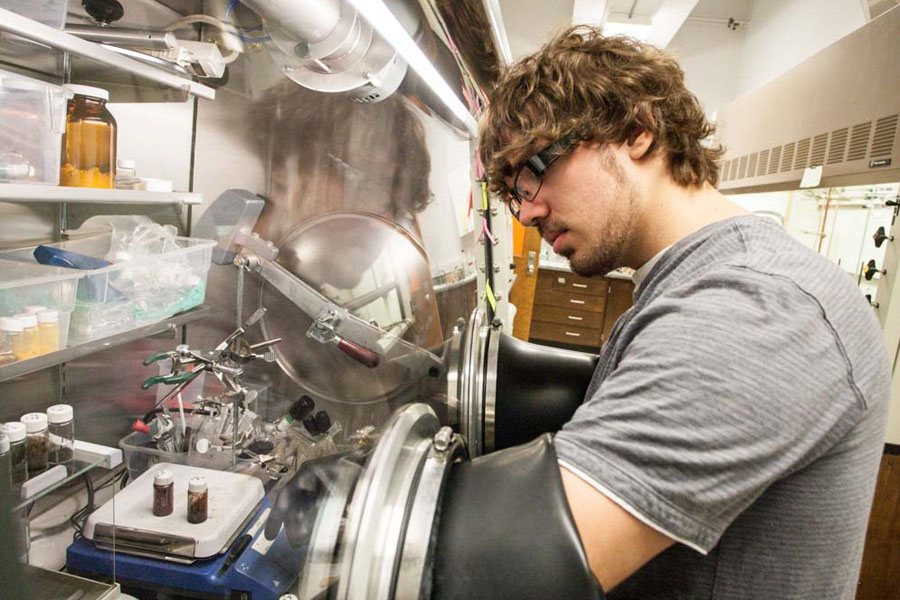Knox Stories
Knox “Abolition for All Time” Lab Excels in Second Year
A major focus of the second year was curricular innovation.

Office of Communications
2 East South Street
Galesburg, IL 61401


Knox College faculty member Helen Hoyt is working with students as she leads a project in "green chemistry" -- an innovative scientific field that blends chemistry and environmental sustainability.
Hoyt '01, assistant professor of chemistry, recently received a $50,000 grant from the American Chemical Society's Petroleum Research Fund Undergraduate New Investigator program in support of her research. The grant award will provide eight Knox undergraduate students with an immersive summer research opportunity similar to a graduate-level research experience.
The basic idea behind "green chemistry" is to find better, more efficient, and environmentally conscious ways to create chemical products. One priority is to reduce or eliminate toxic substances that are used in chemical reactions.
"Green chemistry is a field that first emerged in the 1990s and has really gained momentum within the last 10 years," said Hoyt, a 2001 Knox graduate who joined the College's faculty in 2011. "There's a focus on not just making something, but trying to make it in a sustainable way."
Her research focuses on catalysis -- a process in which a small amount of material, known as a catalyst, alters the speed of a chemical reaction yet remains intact afterward. Using catalysis is one of the principles of green chemistry, Hoyt said, because "it minimizes the number of steps, minimizes byproducts, and minimizes waste."
Hoyt is exploring the use of iron as a catalyst, and she hopes to synthesize and study new iron complexes. Iron is an appealing catalyst because it is cheap, abundant, and non-toxic.
Two Knox students assisted with her research in summer 2013 by making iron compounds bearing ligands, which are molecules that attach to a central metal atom.
Marika Takemura, a Knox senior majoring in chemistry, created a new ligand and studied its properties.
Mike Supej, a Knox junior majoring in chemistry and mathematics, made new iron compounds, "which we've been calling pre-catalysts. He's able to activate the pre-catalyst and make an active catalyst," Hoyt said.
For their work, the students used sophisticated equipment, including an inert atmosphere glovebox, an infrared spectrometer, and a nuclear magnetic resonance instrument.
Initially, Takemura said, she was a bit uneasy about using the equipment. "But you really get comfortable as a chemist, as a scientist," she said.
"I'm getting a lot of hands-on experience with a lot of very important pre-professional laboratory techniques," Supej said. "Organometallic chemistry is not something that you see very often in undergraduate programs, so getting (familiar with) these techniques that are preparing me for either going to some sort of industrial facility or to a graduate school is really valuable."
Hoyt said the students' research work "is pretty typical for how cutting-edge science research happens."
"They have a mentor who shows them how to do the techniques as needed, and then once they master those, they can work more independently," she added. "They're really developing into independent scientists able to ask and answer important scientific questions."

Published on December 13, 2013